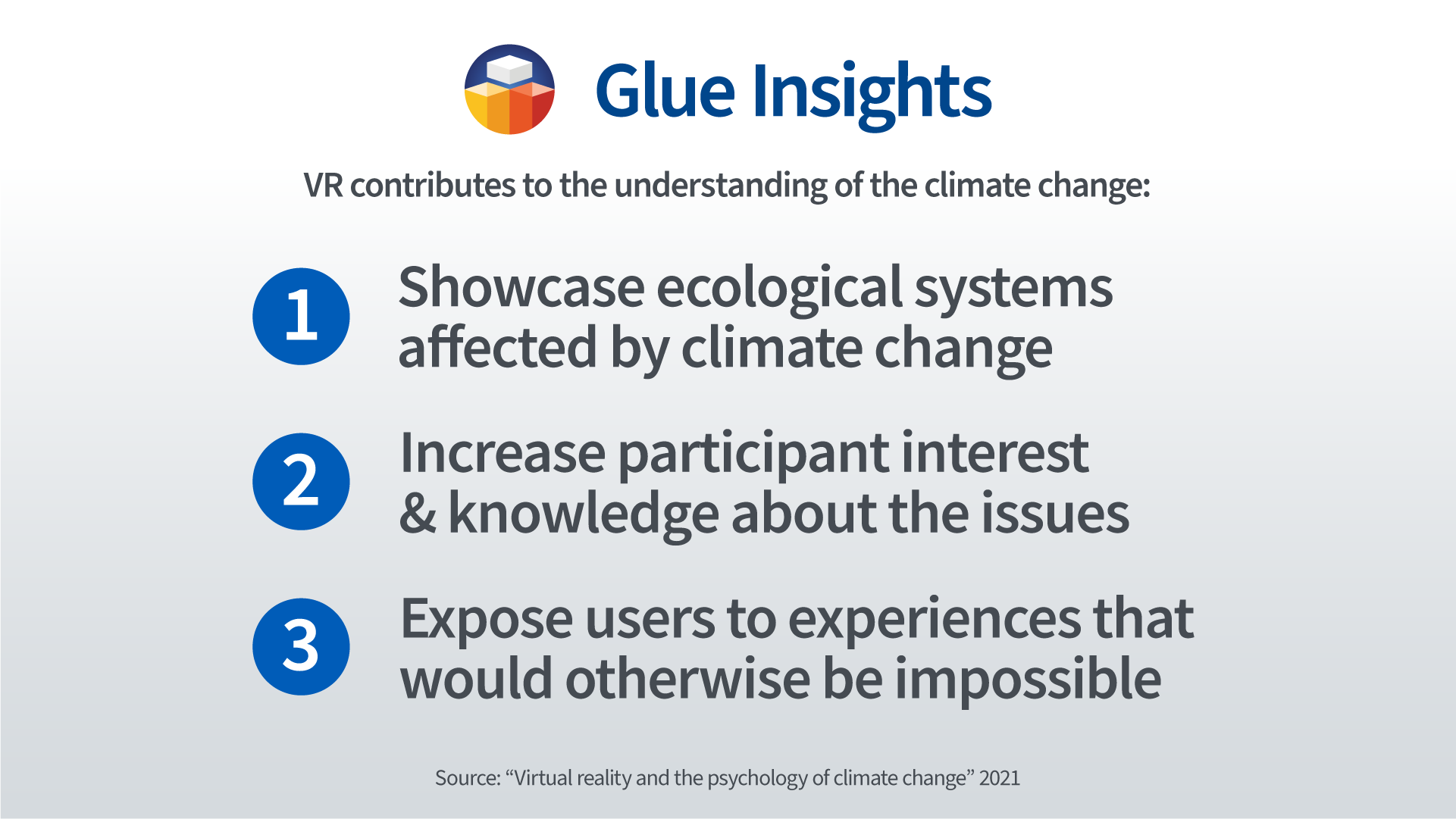“VR experiences can make important contributions toward understanding psychological aspects of climate science.”
David M. Markowitz and Jeremy N. Bailenson reviewed the connection between VR and climate change and identified how the technology can be a useful tool to deliver meaningful climate change content and educate people.
Due to the immersive nature of the technology, VR experiences contribute to climate science by:
1. Showcasing how climate change affects different ecological systems
2. Exposing users to new experiences that would otherwise be impossible, dangerous, or costly
3. Enhancing people’s knowledge by delivering meaningful educational content
This study demonstrates that immersive VR experience is a powerful tool for impactful presentations, showcasing, and storytelling, which can be used to change people’s attitudes and behavior.
It is great to see it being used to help people and companies to be more sustainable and environmentally friendly.
Source: “Virtual reality and the psychology of climate change” 2021


